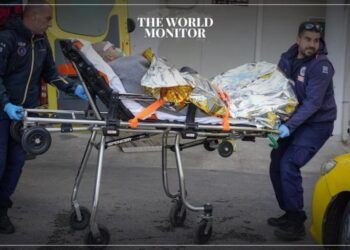The intensity of battles has escalated in El Fasher, the capital of North Darfur, as well as four key fronts, including several areas in central Sudan’s states of Gezira and Sennar, alongside the capital Khartoum and the eastern region of El Fao.
The Sudanese Doctors’ Syndicate has released new figures indicating that more than 30,000 people have been killed and over 70,000 injured since the outbreak of war in April last year, warning that the actual number of casualties could be much higher.
According to a statement from Sudanese trade unions, the war has displaced over 12 million people, with about 9 million moving to other internal regions and more than 3 million seeking refuge in neighbouring countries.
Recent hours have seen a notable increase in the severity of fighting in El Fasher amid heavy artillery shelling that has affected numerous neighbourhoods and markets, resulting in dozens of deaths and injuries.
The cities of Omdurman and Khartoum have also experienced intense ground and aerial bombings, causing casualties and significant damage to residential areas.
The battles have continued in the northern axis of Khartoum Bahri, where artillery shelling has severely damaged the main oil refinery, which supplied about 33% of the country’s fuel and petroleum needs.
In the states of Gezira and Sennar, ongoing mobilizations and intermittent clashes are reported amidst tragic conditions for residents of over 200 villages and towns.
The Sudanese Trade Unions Authority has warned of a worsening humanitarian crisis for the displaced and has issued an urgent call to humanitarian organizations to assist hundreds of thousands trapped or besieged in conflict zones.
The authority has also appealed for an immediate and permanent ceasefire and the opening of humanitarian corridors to aid the affected and treat the injured.
“We have been following with great concern all reports and statistics from the trade union front and global organizations indicating a serious escalation of the humanitarian crisis in Sudan due to the ongoing war,” the statement noted.
The statement highlighted that over 25 million people require urgent humanitarian assistance and support, including 14 million children, while 15 million Sudanese lack healthcare amid the disruption of 80% of health facilities.
The authority believes that ending the population’s suffering hinges on implementing an immediate and permanent ceasefire, allowing unrestricted access to humanitarian aid, opening safe passages for urgent humanitarian assistance, and initiating a political dialogue that includes Sudan’s civilian forces interested in ending the war.






